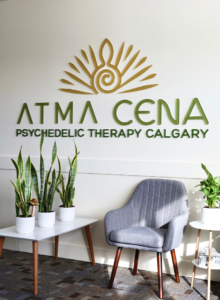Psychedelic-assisted therapy is an emerging field that’s gaining traction in the mental health community. This innovative therapeutic approach involves the controlled and supervised use of psychedelic substances such as psilocybin, Ketamine and MDMA to enhance the effects of psychotherapy. Though it may seem like a specialized field, everyone in healthcare, particularly those working at clinics, should consider educating themselves on this subject – even if they don’t plan on practicing it.
Understanding A Growing Field
Psychedelic therapy is no longer a fringe idea. Recent studies have shown promising results in the treatment of PTSD, addictions, depression, and anxiety disorders. Professionals who understand this therapy can contribute to more comprehensive and inclusive patient care. Their knowledge can guide policy decisions, research directions, and the broader societal perception of this innovative form of therapy.
A New Approach to Mental Health
Traditional treatments are not always effective for every patient. Psychedelic-assisted therapy offers a new and complementary method that taps into the profound inner experiences, potentially unlocking new avenues for healing.
Improved Patient Communication
Patients are increasingly curious about new therapies, including psychedelic-assisted therapy. Healthcare professionals educated in this field can provide accurate information and address concerns, fostering better communication and trust.
Building Trust
By having knowledgeable conversations with patients about their options, including the risks and benefits of psychedelic therapy, healthcare providers can cultivate trust and demonstrate empathy. This understanding might lead to more personalized care plans that take into account all available options.
Cross-Disciplinary Collaboration
Psychedelic-assisted therapy often requires collaboration between psychiatrists, psychologists, medical doctors, and other healthcare professionals. Having a fundamental understanding of this therapy can enhance collaboration and lead to better patient outcomes.
Enhancing Teamwork: Working together with a shared understanding of the principles and practices of psychedelic therapy fosters teamwork. It also promotes a cohesive approach that benefits both the patient and the entire healthcare team.
Potential Future Applications
With continued research and changing regulations, psychedelic-assisted therapy may become a more mainstream option. The potential applications are vast and could extend to areas such as:
Obsessive-Compulsive Disorder (OCD): Research is exploring how psychedelic-assisted therapy might provide new avenues for treatment, especially for those who do not respond to traditional methods.
Palliative Care: For individuals facing terminal illnesses, psychedelic-assisted therapy could offer emotional and psychological support, alleviating existential anxiety and improving overall quality of life.
Brain Trauma: There are emerging studies investigating the use of psychedelic-assisted therapy for patients with brain injuries, exploring how it may facilitate healing and rehabilitation.
Even healthcare professionals not currently involved in this type of therapy should be aware of its potential applications. Understanding this innovative approach can lead to more comprehensive patient care, offering diverse therapeutic possibilities in various fields of medicine.
Staying Ahead of the Curve
Medical science and therapies are continually evolving. Understanding the future potential of psychedelic-assisted therapy ensures that healthcare providers stay at the forefront of possible treatment options and patient care advancements.
Psychedelic therapy represents an exciting frontier in mental healthcare. Whether directly involved in its practice or not, healthcare professionals stand to benefit from understanding this emerging field. It allows for greater patient engagement, supports collaboration across various healthcare disciplines, and contributes to a more comprehensive understanding of mental health treatment options.




